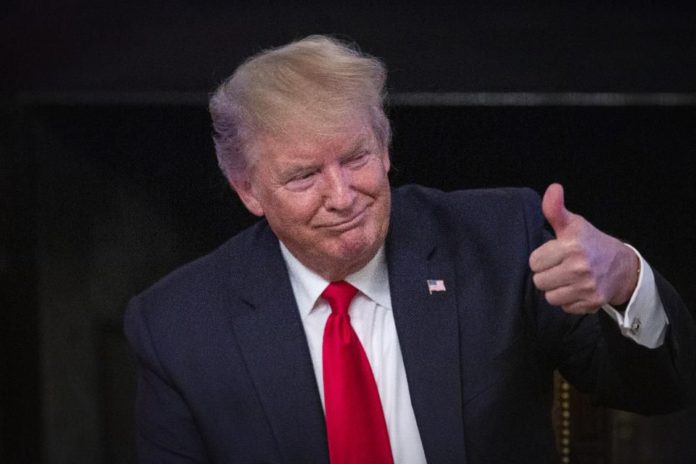
Shortly after the Supreme Court issued its decision on his claim of presidential immunity, Donald Trump took to social media to celebrate.
“Big win for our constitution and democracy,” he posted on Truth Social. “Proud to be an American!”
While Trump did not get the sweeping protections that he and his lawyers had sought, he got more than enough to achieve his immediate objective of delaying another trial until after November’s election.
The ruling from the six conservative justices dealt a serious blow to the federal criminal case against him on charges of attempting to overturn the results of the 2020 election.
Special Prosecutor Jack Smith and his team will have to significantly restructure their case against the former president, and the evidence they can rely upon to support it, if they want to continue. The trial was put on pause pending this decision.
Friday’s 6-3 ruling guarantees any prosecution that emerges from this decision will be delayed well past November’s presidential election, as the trial court sorts through the Supreme Court’s guidance.
In effect, the six conservative justices have set an extremely high bar for Mr Smith and his team to meet.
Trump, the court held, has total immunity for official acts as president related to his core constitutional duties. That includes the communications he had with Department of Justice officials about allegations of election fraud. And so, that portion of the indictment against Trump is effectively dead.
Beyond that, the six justices said there is a presumption of immunity for any other official acts. In practical terms, that means prosecutors will have to work much harder to bring a case against Trump.
The court added, however, that presidents do not have immunity for non-official actions.
Chief Justice John Roberts, in his opinion, went on to apply this standard specifically to the former president – guidance that could be particularly damaging to the prosecution in the election interference case.
Trump’s attempts to pressure Vice President Mike Pence not to certify Joe Biden’s election victory – a key part of Jack Smith’s case – are the kind of official action subject to that higher standard of legal review.
The former president’s comments on 6 January 2021, which are alleged to have incited the Capitol attack, are also likely to be deemed official actions.
The chief justice also said “testimony or private records of the president or his advisers” are not admissible in court. This greatly limits the kinds of evidence prosecutors can introduce to support their case, even in instances involving non-official actions.
Meanwhile, Trump’s contacts with private citizens will have to be considered by the trial court as to whether they are unofficial actions.
Justice Roberts explained that presidents need such broad immunity for official actions because the threat of criminal prosecution – and the “peculiar public opprobrium that attaches to criminal proceedings” – might “distort” presidential decision-making.
“The president is not above the law,” he wrote. “But Congress may not criminalise the president’s conduct in carrying out the responsibilities of the executive branch under the Constitution.”
If the former president and his team were celebrating the decision as a victory for American democracy, the three liberal justices on the court had a very different view.
“In every use of official power, the president is now a king above the law,” Justice Sonia Sotomayor warned in her opinion disagreeing with the court’s ruling.
She went on to list a variety of actions for which presidents could not be prosecuted, such as ordering the assassination of a political rival, taking bribes in exchange for pardons and organising a coup to hold on to power.
“Immune,” she wrote. “Immune, immune, immune.”
“With fear for our democracy,” she concluded, “I dissent.”
The Supreme Court now hands the election interference case back to the lower court judge, while will have to apply the details of the decision. Those decisions will also be subject to appeal and review – a process that could take months if not years.
And if Trump wins the presidency in November, his appointees to the justice department could drop the case entirely.



